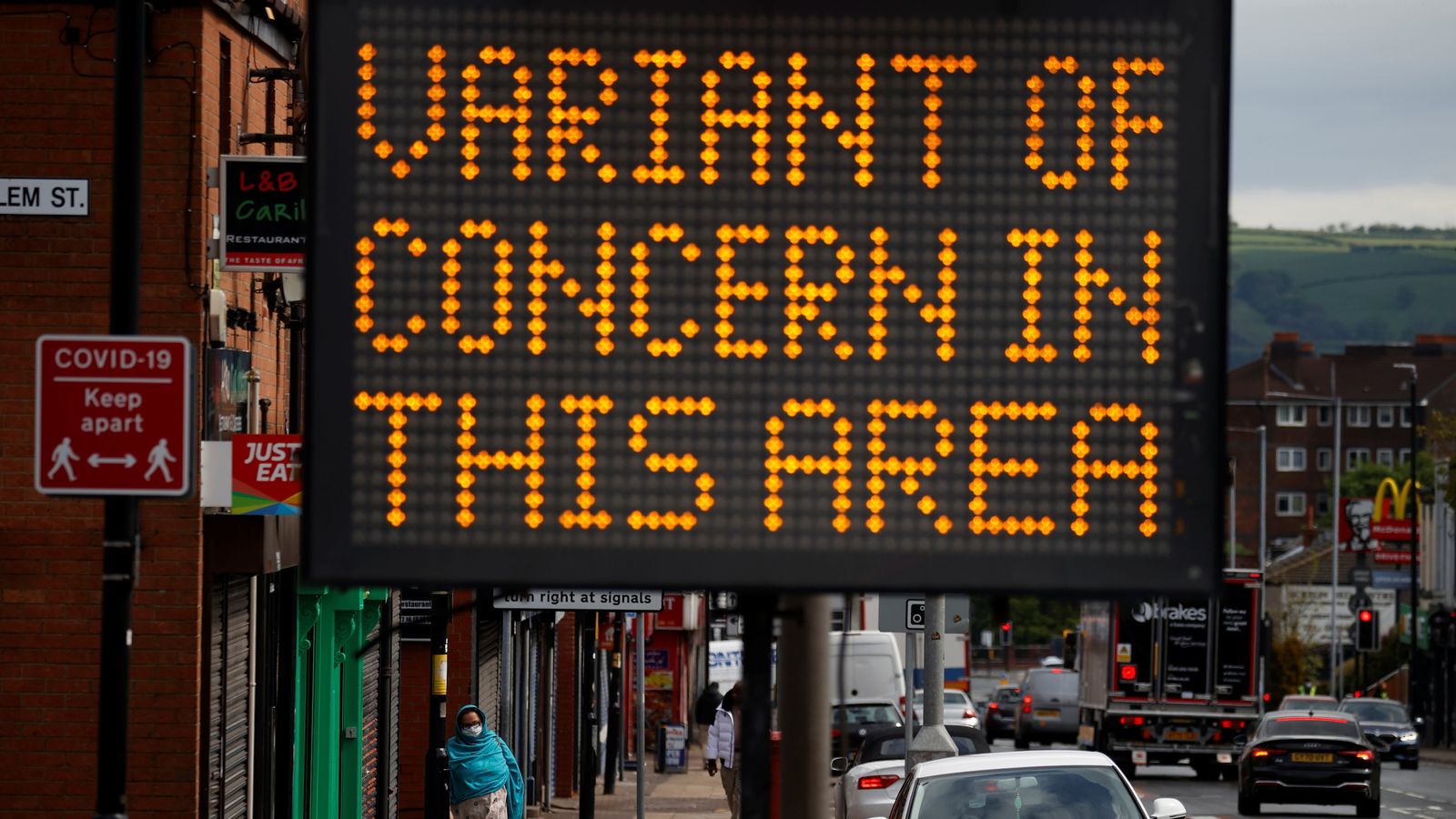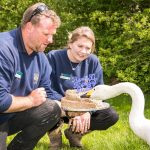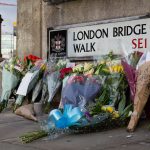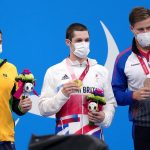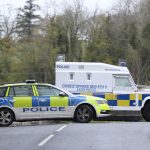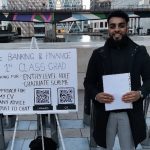People living in COVID hotspots where Indian variant cases are rising should “think carefully” about new freedoms that came in this week, Professor Jonathan Van-Tam has said.
From Monday 17 May, up to six people, or two households, have been allowed to meet indoors in England.
Also, indoor hospitality – pubs, restaurants, cinemas, theatres, museums, galleries, concert halls, children play areas, hotels, B&Bs, indoor exercise classes – has been permitted.
And hugs between households are allowed for the first time since restrictions began more than a year ago.
Live COVID updates from the UK and around the world
When asked at a briefing if he would advise people in areas such as Bolton with high coronavirus rates against taking advantage of the changes in lockdown rules, he said: “I would advise the residents in those areas to think very carefully about the freedoms they have, weigh up the risks and be very cautious.”
England’s deputy chief medical officer added at the Downing Street news conference: “If it is possible to do something outside, better to do it outside.
“If it is possible to do something with smaller numbers, with people you know rather than multiple new contacts, it’s better to do that. Take it steady.”
He went on: “The government has given people freedoms to start to make these judgments for themselves.
“And I understand that we can’t live for years and years on end with rules, people will have to learn to manage these risks from COVID for themselves because this is not going to go away in the short term, medium term and probably the long term.”
He also compared the risk of holidaying in countries with higher levels of coronavirus even after vaccination to jumping into different levels of shark-infested ponds.
Prof Van-Tam said: “When you go abroad, jumping into a pond with one shark in it or jumping into a pond with 100 sharks in it, it changes the likelihood that you’re going to get bitten.
“The disease levels in these different countries that are potential destinations are all very different, and some of them still have quite levels of disease activity compared to the UK.”
It comes as nearly 3,000 cases of the Indian coronavirus variant of concern have been identified in the UK, a rise of 600 since Monday.
Health Secretary Matt Hancock says 2,967 cases of the B1617.2 variant had been identified, up from the 2,323 declared two days ago.
“The race between the virus and the vaccine has got a whole lot closer,” he said.
Bolton, Blackburn with Darwen and Bedford are the main areas where concerning numbers of cases have been identified.
But there will also be surge testing and vaccinations in Bedford, Burnley, Hounslow, Kirklees, Leicester and North Tyneside, while the Scottish authorities are taking similar measures in Glasgow and Moray.
